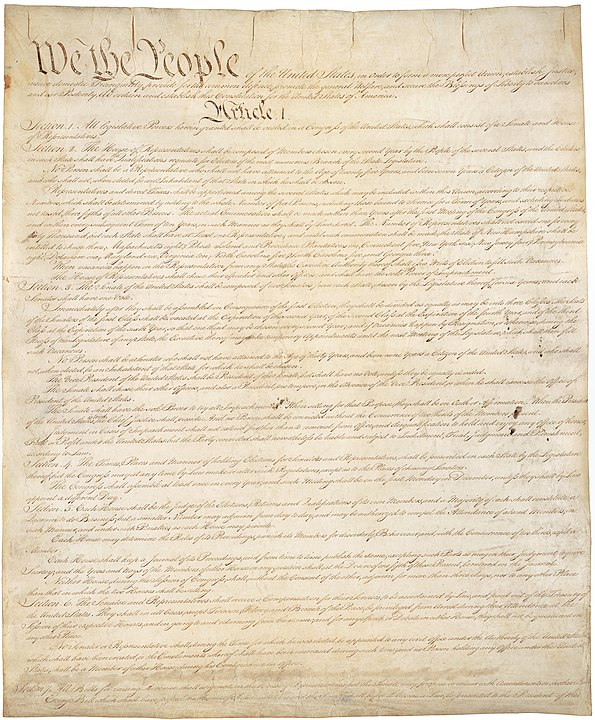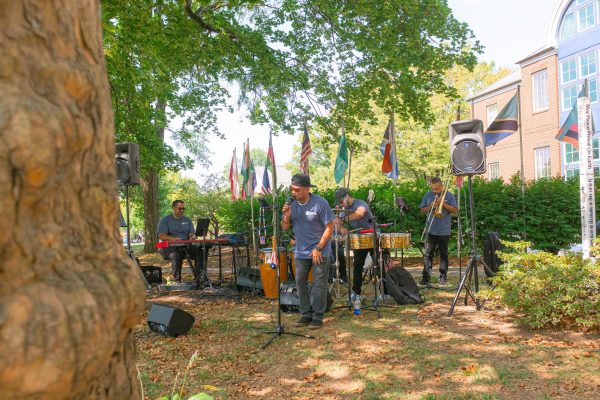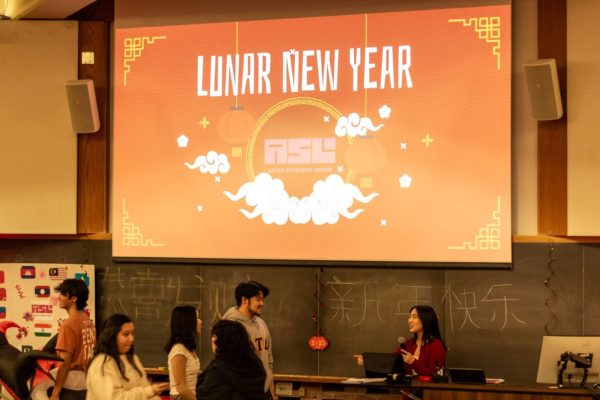Constitution Day: Moravian Celebrates the Country’s Social Contract
On the afternoon of Friday, Sept. 16, in PPHAC 101, a group of Moravian students and professors celebrated Constitution Day, a national event that recognizes the adoption of the U.S. Constitution and those who have become U.S. citizens.
Constitution Day was created in 1939 by newspaper publisher William Randolph Hearst, who suggested there be a holiday to celebrate American citizenship. Moravian University recognized the celebration for the first time this year, thanks to the efforts of Dr. Samuel Rhodes, assistant professor of political science at Moravian.
“The Constitution is a social contract that we make with each other and with the government. It’s a contract that you have to practice every minute of every day,” he said. “Having these anniversaries helps to remind us that this is something that we should not take for granted. Because without this practice and without honoring the thing that unites us as a people by definition, we risk fracture, we risk division.”
Twenty students came and went during the two-hour event; a few faculty members sat quietly in the back. Everyone helped themselves to the pizza catered by Moravian University as they learned more about the Constitution.
The focus of the event was a live Zoom call discussion on the issues and events in the American colonies that led to the Constitutional Convention.
One panel debated originalism and the Constitution. It included Hasan Kwame Jeffries, associate professor of history at The Ohio State University; Akhil Reed Amar, Sterling Professor of Law and Political Science at Yale University; and Colleen Sheehan, professor of politics at Arizona State University. They were joined by National Constitution Center President and CEO, Jeffrey Rosen.
Each of the three academics provided a historical text and described the influence it had on the creation of the Constitution.
“You have to read, and if we don’t, we die,” said Amar when discussing the importance of reading historical texts (like the Declaration of Independence).
Another panel discussed the various interpretations of the Constitution and whether “originalism” is the correct way to view the document. Originalism is a way of thinking that believes that interpretations of historical texts should be followed in the manner that they were meant when first created.
“If I thought originalism was consistent and actually constrained judges in any kind of true, real comprehensive way, I would have intellectual respect for it, even if I still disagree with its outcome,” said Emily Bazelon, staff writer at the New York Times Magazine. “But it does not.”
“The Constitution is the original deal,” countered Rich Lowry, editor-in-chief of National Review. “It is the basis of our Republic, and the founders wrote it down for a reason. Because it was the deal.”
When reflecting on the event, Amro Elkelny, a biology major, said she learned a lot. “I might not be the most politically involved person, but [the Constitution] created the infrastructure we’re living by right now. so it’s important to celebrate it.”







